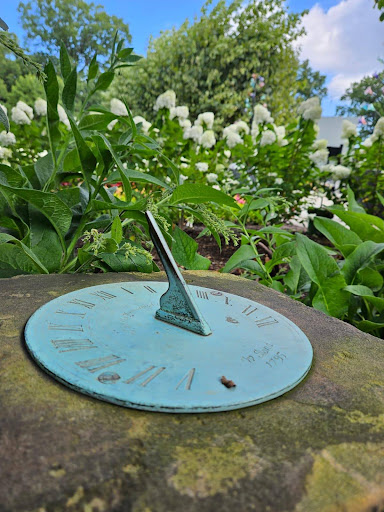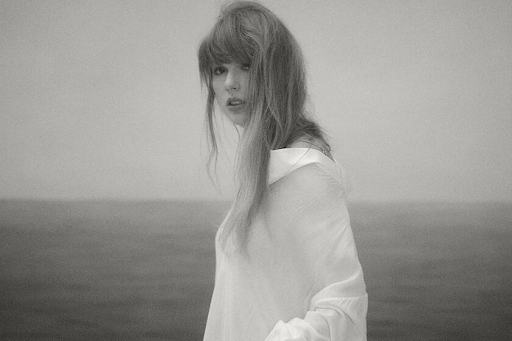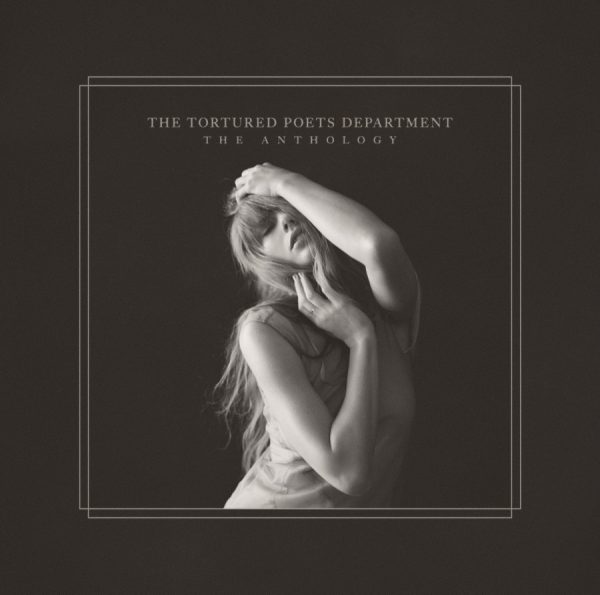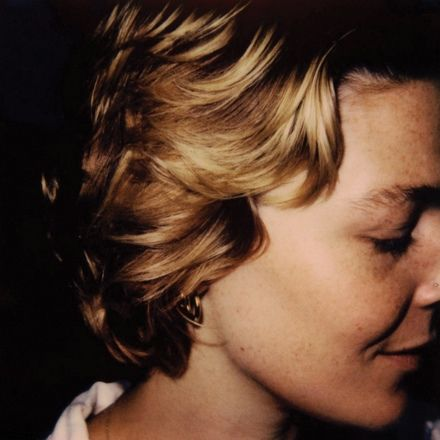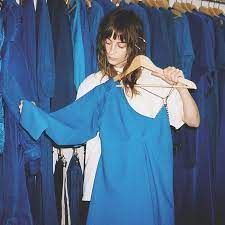“Red (Taylor’s Version)” leaves me “happy, free, confused and lonely in the best way”
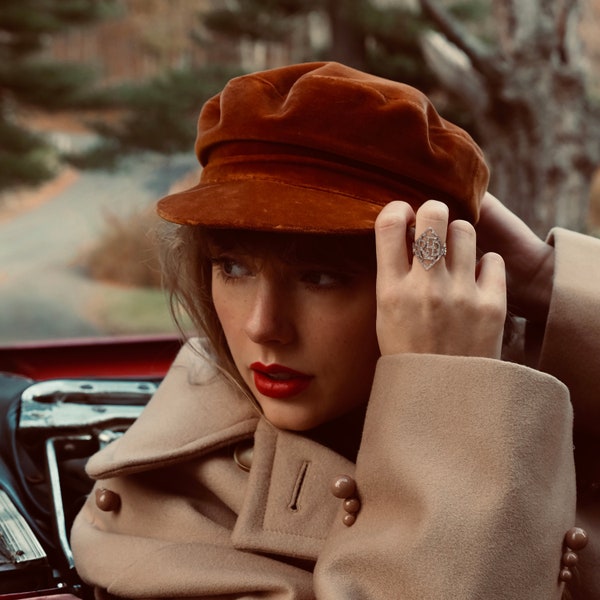
Image found on Spotify.
November 17, 2021
On Nov. 12, Taylor Swift released the re-recording of her fourth studio album, “Red.” The album is a warm and nostalgic revisit of her eclectic collection of songs detailing the ups and downs of a relationship and its subsequent heartbreak as well as the bittersweet nature of adjusting to her 20s. Cushioned between the country rock “Speak Now” and the 80s synthpop inspired “1989,” “Red” is a bridge between the country sweetheart of yesterday and the big popstar we now know, fittingly housing tracks from all locations of the country to pop spectrum. In “Red (Taylor’s Version),” Swift not only recreates the original “Red” experience, but upgrades it with extra songs, matured vocals, enhanced production, a new music video and even a short film written and directed by Swift, making the re-recorded album a treat for dedicated fans and casual listeners alike.
The re-release follows Swift’s masters recording controversy and exemplifies Swift’s effort to shine a light on the importance of musicians owning the rights to their own music. Swift plans to rerecord all six of her albums which she created under her previous label, Big Machine, to reclaim her masters, a bold action which is generating a shift in the view of music ownership especially due to her prominence in the music industry.
Similar to “Fearless (Taylor’s Version),” “Red (Taylor’s Version)” stays true to the original as much as possible, at least for the most part. An exception is “Girl at Home,” where Swift swaps the track’s acoustic guitar for heavy synth, which is considerably more fitting for the track. While minor changes mostly improved the quality of the album, some details, such as the pitchy “we-ee’s” in “We Are Never Ever Getting Back Together,” fall flat in comparison to the original tracks.
Despite general sonic continuity of the album, some tracks, such as “The Lucky One,” hit ever so much harder in retrospect. Swift tells the tragedy of a star and the disadvantages of fame, “And they still tell the legend of how you disappeared/How you took the money and your dignity/And got the hell out/They say you bought a bunch of land somewhere/Chose the Rose Garden over Madison Square/And it took some time, but I understand it now,” lyricism which hauntingly matches her own disappearance from the media after public opinion turned against her in 2016.
Along with the deluxe version’s 22 tracks and the previously released single “Ronan,” Swift released nine songs “From the Vault,” bonus songs which were intended for the original album but were never released in the 2012 version.
Among the vault tracks are two country ballads written by Swift which she previously gave to other artists, “Better Man” and “Babe,” as well as a never before heard country single, “I Bet You Think About Me,” a collaboration between Swift and country artist Chris Stapleton. Upbeat and with a twinge of humor, “I Bet You Think About Me” is a contrast from other breakup songs on the album which are more melancholic and somber. Making fun of her ex-lover for his pretentious demeanor, Swift ends the song by playfully remarking, “I bet you think about me when you say/’Oh my god, she’s insane, she wrote a song about me’/I bet you think about me.”
At the other end of the country to pop spectrum are two pure pop vault songs – “Message in a Bottle” and “The Very First Night,” both unabashedly joyous, both musically and lyrically. Although having never been released previous to the release of the album, the tracks feel exceptionally nostalgic due to the songwriting reminiscent of 2010s bubblegum pop, a style that has generally faded out of popularity. Although not the strongest of the album, the songs are delightfully catchy and a sentimental time capsule of the original “Red” era.
“Forever Winter,” Swift’s message to a friend struggling with depression and thoughts of self harm, is a standout of the vault songs. Through the chorus, the singer tenderly pleads, “Too young to know it gets better/I’ll be summer sun for you forever/Forever winter if you go.”
Another favorite vault track of mine on the album is “Nothing New,” a duet between Swift and indie folk singer-songwriter Phoebe Bridgers. Directly juxtaposing the light-hearted and jubilant “22,” “Nothing New,” written by Swift at 22, brilliantly grapples with the struggle of women in the music industry to stay relevant and approved of by the public eye after they’ve already garnered success. Swift’s soft voice and Bridgers’s airy one trade verses, ultimately culminating in a heart-rending chorus: “How can a person know everything/At eighteen, but nothin’ at twenty-two? And will you still want me when I’m nothin’ new?”
The album ends at the zenith of “All Too Well (10 Minute Version).” A fan favorite since the 2012 album’s release and widely regarded as one of Swift’s best works (if not the best), the new version includes never before heard verses which were cut for the 2012 recording. Doubling the length of song, the new lyrics further demonstrate Swift’s expert storytelling to transform the narrative of the 2012 track – a tragic chronicle of Swift’s breakup – to an agonizing account of the heartache and manipulation Swift faced from her former lover and the grief and resentment which followed. The song feels like an amalgamation of the original portrayal first heard in 2012 and a completely fresh one, creating a picture of the split that almost seems like a reflection of current day Swift on her past relationship. Weaving in between the familiar lyrics, like “And you call me up again just to break me like a promise/So casually cruel in the name of being honest,” the new ones burst through the thread, such as “They say all’s well that ends well, but I’m in a new hell/Every time you double-cross my mind/You said if we had been closer in age maybe it would have been fine/And that made me want to die,” shaping a new perspective while simultaneously keeping the song thematically cohesive.
Swift uncovers new details of the relationship in the song, including a reference to the infamous birthday party from “The Moment I Knew” where her lover failed to show at her celebration: “You who charmed my dad with self-effacing jokes/Sipping coffee like you’re on a late-night show/But then he watched me watch the front door all night, willing you to come/And he said, ‘It’s supposed to be fun turning twenty-one,’” painting a fuller story of the breakup.
Shifting from the pure dejection of the 2012 version, the 10 minute track explores anger toward her lover rather than simply sorrow: “The idea you had of me, who was she? A never-needy, ever-lovely jewel whose shine reflects on you.” The most scathing remark comes at the beginning of the fifth verse, where Swift humorlessly quips, “And I was never good at telling jokes, but the punch line goes/’I’ll get older, but your lovers stay my age,’” a culmination of the buildup of grievances throughout the song.
But after wringing out her indignation, the song returns to a tone of solemn rumination. Referencing the first track of the album, “State of Grace,” in which Swift describes the connection between her and her ex-lover during the first stages of the relationship as “Just twin fire signs, four blue eyes,” she softly asks her ex-lover at the relationship’s conclusion, “And did the twin flame bruise paint you blue? Just between us, did the love affair maim you, too?” In an aweing conglomeration of melodies old and new, Swift solidifies “All Too Well” as the crown jewel of her discography as well as the fact that despite media focus on the subject of her work rather than the work itself, she has always been a brilliant and skilled songwriter first and foremost.
“Red” has been with me for nine years – all the way from my awful third grade karaoke renditions of “22” when the album was first released to now – but the release of “Red (Taylor’s Version)” has reignited my love for the album. Allowing listeners to relive the album’s original era but also introducing new songs and music videos, Swift expertly treads the line between nostalgia and newness, keeping the listening experience fresh and exciting for a selection of music we know “all too well.”


